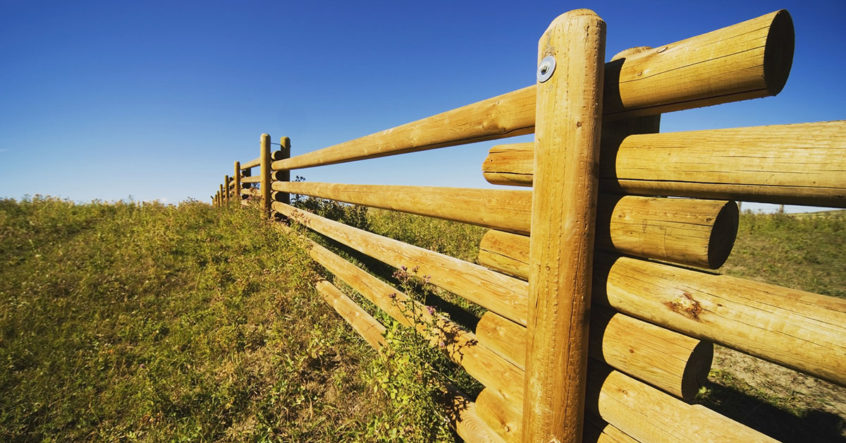Whether you have large tracts of land or a small plot, the decision to fence your property is a very important one. Fencing is not only crucial for security purposes but it also essential when you are looking to maintain your privacy or adding to the aesthetic appeal of your home. A good fence will also significantly increase your property resale value.
Nevertheless, there are different kinds of fence types out there, and the type you choose depends on your preferences. However, for the past 400 years, wooden fences have been the go-to fence type in the United States. Why? This is because wood is lightweight, inexpensive, and can be easily designed to give your property individuality and character.
Fencing, however, is no simple endeavor. It is an intricate procedure that requires proper planning and skill, especially when installing fence posts. For instance, if you do not properly install your wood fence posts, your fence might come tumbling down during a windy day, resulting in thousands of dollars in damage. As such, it is imperative that you consider hiring the services of a fencing contractor, as they are well versed in fence installation.
Here is a guide to everything you need to know about installing fence posts:
1. Do You Need a Permit to Build a Fence?
Depending on the state you live in, there might be zoning ordinances which require that you obtain a permit before you construct a fence. Moreover, the local homeowner’s association might also have a say on the design, height, and material you use, especially if you live in an area that features deed restrictions and other binding guidelines. So, be sure to check with the local authorities to see whether there are any zoning ordinances in place.
2. Should You Consult the Neighbors?
Even though it is not a strict requirement that you first consult with the neighbors, it is only a matter of etiquette that you should do so. You might, in fact, be surprised to learn that your neighbor was thinking about the same thing, and they might even agree to share costs. It does not hurt to give them a heads-up.
3. What Materials Should You Use?
The most commonly used fencing materials are vinyl, wood, and metal. Vinyl fences are usually pre-fabricated and installed in sections rather than individual pieces. Wood fences are made out of different types of lumber and are installed piece by piece. Metal fences are usually made out of steel or aluminum and the most common type are chain link fences. The material you choose will depend on your specific needs. Ensure that you speak to a fence contractor so they can give you expert insight.
4. How Many Posts Do You Need?
When determining the number of posts you need for your fencing project, it is necessary that we remind ourselves of post placement. Standard post placement dictates that you set the posts between 6 and 8 feet apart. Placing the posts farther than 8 feet apart could see the fence begin sagging over time while placing them less than 6 feet apart could see you use more posts than is necessary.
Thus, to determine the number of posts you need, just measure the length of the area you need to be fenced then divide by 8 or 6.
5. The Height of Your Posts
This will depend on how tall you want your fence to be. The height of a fence is typically determined by your needs. For example, if you are only looking to contain small pets and children or for decorative purposes, 4ft posts would be appropriate, while if security is your concern, 7ft posts will suit you better.
6. How Long Does it Take to Install Fence Posts?
This will depend on the length of the fence, in addition to whether you are installing them yourself, or you have enlisted the services of a fencing contractor. A typical wood or vinyl fence measuring around 200ft should take about three days to install if you hire a fencing contractor.
7. The Durability of Your Posts
How long the fence posts will last depends on the type of material used, and the preventative maintenance efforts applied after installation. Wood posts usually require annual maintenance to keep them in good shape, while aluminum and vinyl posts could last decades with little maintenance.
8. How Deep Should Your Fence Posts Be?
This is typically determined by the overall height of the fence. Nevertheless, the standard is 3ft deep or further for taller fences.
Installing a fence is among the most significant upgrades that you can do to your property. As such, it requires expertise and experience to ensure the job is done right so that your fence looks good and lasts longer. Fallston Fence has had the pleasure of providing fencing services to the people of Harford County for years now. Using your help and our expertise, our goal is to make your fencing idea a reality. Contact us here to get an estimate or learn more.

